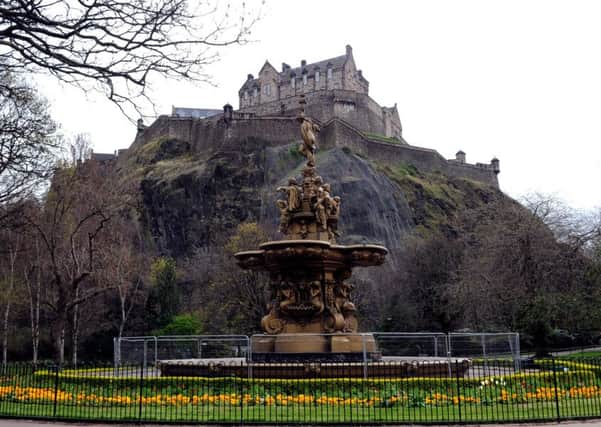Cliff Hague: Taxpayers must call the tune in public spaces


The process has spawned a new acronym – POPS, privately owned public spaces. Not surprisingly, London leads the way, because land there is worth more than anywhere else. To give a few examples, the financial behemoth, JP Morgan, owns Bishops Square in Spitalfields, the Mitsubishi Estate owns Paternoster Square in the City of London, while the Abu Dhabi National Exhibitions Company own the open space around the ExCeL Centre in Docklands; then there is the curious case of the Garden Bridge that never was, but cost council taxpayers more than £40 million.
Edinburgh dipped its toe into this murky water with Multrees Walk, a private street where the owners have forbidden photography “on security grounds”. Now, a much more ambitious project is on the table – to hand over the running of West Princes Street Gardens to an arm’s length external organisation (ALEO), while retaining formal ownership by the council. After Scotland on Sunday broke the story (17 March), the Cockburn Association raised a protest, and the elected members decided to put the future of the gardens on hold, pending consultations.
Advertisement
Hide AdAdvertisement
Hide AdThis is welcome because an unconditional transfer to an unelected, unaccountable body could lead to irreversible long-term change. The ALEO proposal was arrived at through private workshops between Edinburgh Council and the Ross Development Trust (RDT), who between them would be the dominant voices on the ALEO. A 2011 Audit Scotland report on ALEOs identified “concerns about accountability, governance and ill-defined boundaries with council functions.”
The proposed West Princes Street Gardens ALEO would have a trading arm with full operational management control. It would decide when the gardens would close for corporate hospitality or entrance fee events. One of the RDT’s objects is to use Princes Street Gardens to promote “the enjoyment of sport of all kinds”, so anything from beach volleyball to professional wrestling would be an option. The ALEO would sign contracts, but council taxpayers would remain responsible for maintenance of the gardens. The ALEO would decide how to use the income generated from the gardens in line with its charitable objectives. Under charity law, the ALEO trustees – even those representing the council – must put the interests of the ALEO above all others. If the costs of creating an events arena escalate, or fundraising falls short of targets, would the ALEO trim back quality, seek further income-generating developments in “their” gardens, or ask the council for money?
Impatient corporate funders are pressing for quick decisions, but the public have a right to answers on important questions. Will the land managed by the ALEO continue to operate primarily as a public park and gardens? Will there be limitations on public access over and above those that occasionally apply at present? What performance criteria will be set for the ALEO, eg, avoiding damage to the horticulture? Who will assess performance, and what conditions and penalties might apply? Will there be a sunset clause specifying when the agreement between the council and the ALEO will end? Do we really want to gouge a Visitor Centre beneath Princes Street?
The gardens can be improved. The work of the Ross Development Trust in renovating the Ross Fountain is welcomed, but philanthropy should not come with strings attached. The Council should now commit to an even-handed process of listening to its residents.
The consultation should run into the autumn. Fundamental questions need to be asked. What is West Princes Street Gardens for? Is it to be a park that occasionally hosts events, or a commercial events venue surrounded by space for expansion? How can we ensure that options over the gardens are not closed off for future generations?
If such an iconic park as West Princes Street Gardens can be dispatched without any real debate, is there any public space in Scotland that is not up for grabs? Our public spaces belong to all of us – for now.
Cliff Hague is chair of the Cockburn Association